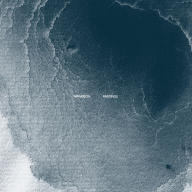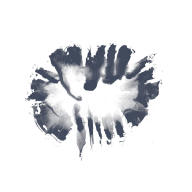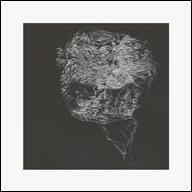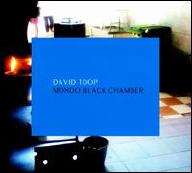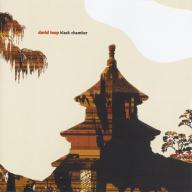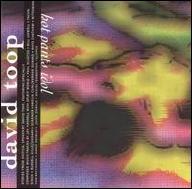Born in Enfield, Greater London, in 1949 and raised in nearby Waltham Cross, Toop studied at iconic British institution Hornsey College of Art. He became a fixture in the British improvisational and experimental music scene, and released several albums in collaboration with artists such as Max Eastley, Paul Burwell, and Steve Beresford. Toop and Eastley's 1975 album, New and Rediscovered Musical Instruments, was one of the first releases on Brian Eno's Obscure label. Toop was a member of experimental rock collective the 49 Americans, as well as avant-pop group the Flying Lizards, who were well known on both sides of the Atlantic for their robotic, postmodern cover versions of oldies such as "Money (That's What I Want)" and "Summertime Blues." He was also involved in General Strike, an experimental dub group, as well as Japanese synth pop band Frank Chickens. Other artists he worked with during the '80s included John Zorn, Ivor Cutler, and Prince Far I.
After a second edition of Rap Attack was published in 1992, Toop recorded one of his most acclaimed albums with Eastley. The duo's 1994 collaboration, Buried Dreams, is a widely hailed document of experimental environmental composition. A dizzying blend of found sounds, field recordings, electro-acoustics, and digital manipulation, its success (and critical popularity) also helped set the tone for Toop's subsequent solo work. Screen Ceremonies was released in 1995 on the Wire Editions label, and he appeared on ambient techno compilations released by labels such as em:t and Instinct Records. Toop also published an extensive, definitive book about ambient music titled Ocean of Sound, and a widely hailed, similarly named double-CD compilation was released, examining the history of recorded sound from Buddhist monks to My Bloody Valentine.
For the remainder of the '90s, Toop was highly active both as a musician and a curator, with albums appearing on Virgin (Pink Noir, 1996, and Spirit World, 1997), Caipirinha (Museum of Fruit, 1997), and Barooni (Hot Pants Idol, 1999), as well as several additional Ocean of Sound compilations. He also published another book, Exotica: Fabricated Soundscapes in a Real World, in 1999, and a third volume of Rap Attack was released in 2000. During the early 2000s, he acted as sound curator for several exhibitions, including 2000's Sonic Boom (at London's Hayward Gallery) and 2001-2002's Radical Fashion (at the Victoria and Albert Museum). Toop composed the soundtrack to a CD-R exhibition in Belgium titled Mondophrenetic, and Sub Rosa released the music as 37th Floor at Sunset in 2000. That same year, Toop collaborated with British cyberpunk novelist Jeff Noon for an album titled Needle in the Groove, which was released by Scanner's Sulphur label. Toop and Scanner later collaborated with I/O3, releasing A Picturesque View, Ignored on I/O3 member Lawrence English's Room40 label in 2002.
In 2003, a Toop solo album titled Black Chamber was released by Sub Rosa. A collaboration with Akio Suzuki titled Breath-Taking was issued by Confront in 2004. Also that year, a new album with Eastley titled Doll Creature appeared on French label BiP_HOp. Toop wrote another book, Haunted Memory, which was accompanied by double-CD compilation, released this time by Staubgold. In 2007, Toop's solo album Sound Body was released by David Sylvian and Steve Jansen's Samadhisound label. His book Sinister Resonance: The Mediumship of the Listener was published in 2010. In 2014, Sub Rosa issued Mondo Black Chamber, a double-CD that compiled the out-of-print 37th Floor at Sunset and Black Chamber, with additional material taken from compilations. The label also released Lost Shadows: In Defence of the Soul - Yanomami Shamanism, Songs, Ritual, 1978, a reissue of a record of traditional songs Toop recorded in the Amazon jungle. Life on the Inside, Toop's audio companion to an exhibition by French sculptor Pierre Besson, was released by Sub Rosa in 2016. In the same year, Room40 put out Toop's first original studio album in almost a decade, Entities Inertias Faint Beings.
Skin Tones, an improvised set with Ken Ikeda, was released by Home Normal in 2017. Suttle Sculpture, a previously unreleased collaboration with Burwell recorded in 1977, appeared in 2018. Toop contributed to Tania Chen's 2018-issued recording of John Cage's Electronic Music for Piano, which also featured Thurston Moore and Jon Leidecker. Two albums by Toop were released by Room40 in September 2020. Field Recording and Fox Spirits is a collage of recordings from Toop's personal archives dating back to the early '70s, and the electro-acoustic full-length Apparition Paintings features contributions from Rie Nakajima, harpist Áine O'Dwyer, Keiko Yamamoto, and others. ~ Sean Cooper & Paul Simpson, Rovi


